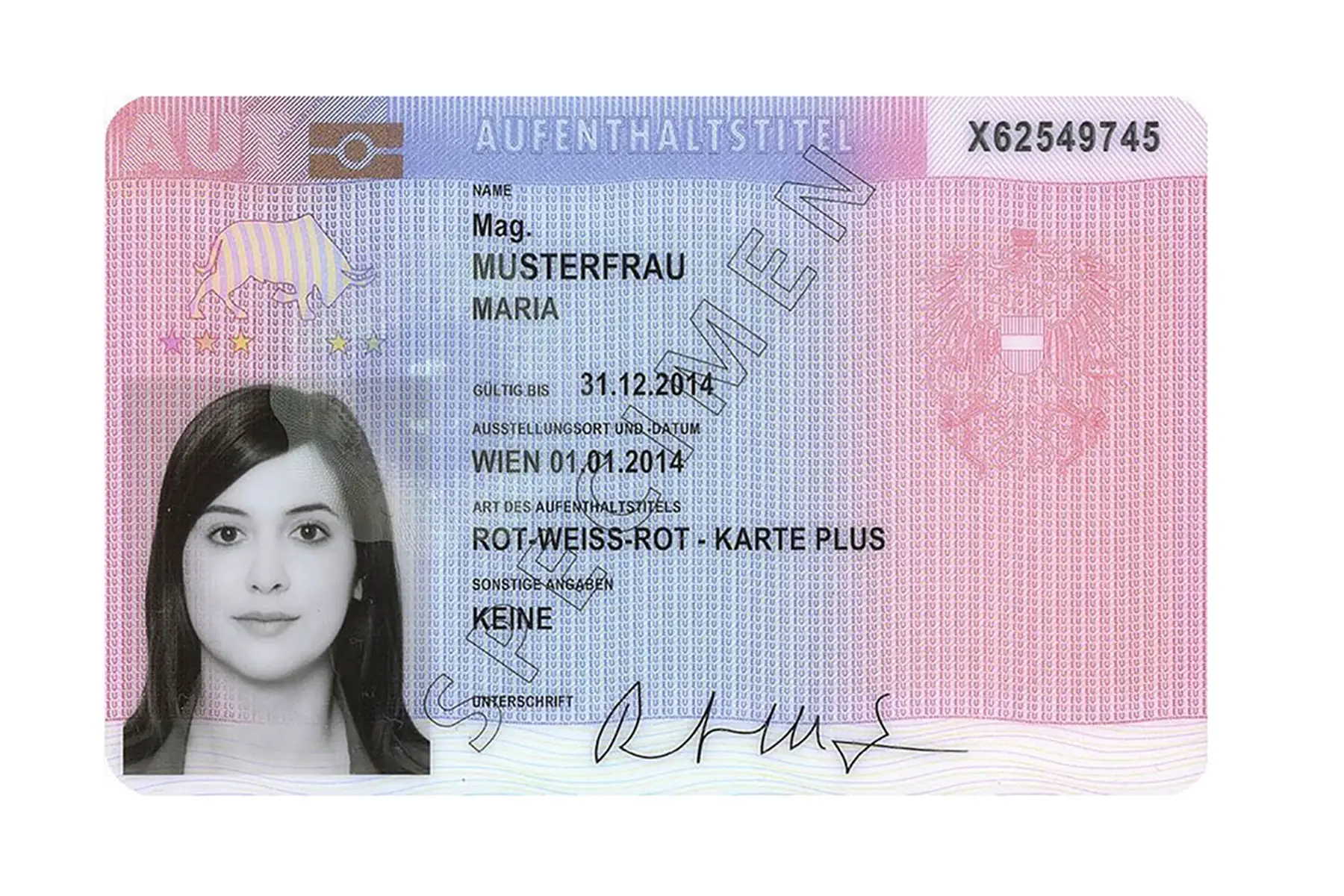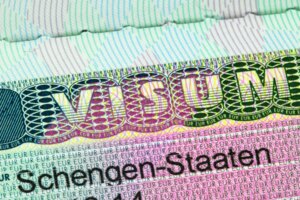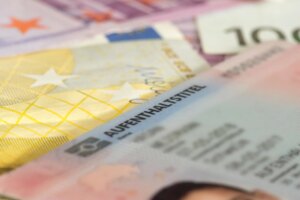Are you hoping to work in Austria? You might need a visa and work permit. Different requirements apply depending on your nationality, employment status, residency, and qualifications.
Find out what documents you need to work in Austria – explore the different visas and work permits, including the Red-White-Red Card. You can learn about the application process and requirements in the following sections:
- What’s the difference between a work visa and a work permit in Austria?
- Who needs a visa and/or work permit to work in Austria?
- Types of Austrian work visa
- Types of Austrian work permit
- Application process for Austrian work permits and visas
- Appeals and complaints for Austrian work permits and visas
- Useful resources
The Relocator
Planning a new life in Austria? Give yourself some peace of mind with The Relocator. On their easy-to-use platform, you'll be able to compare your options quickly, getting quotes from some of the biggest names in global relocations. Move abroad confidently with The Relocator.
What’s the difference between a work visa and a work permit in Austria?
If you plan to work in Austria, you need to know the difference between a work permit and a work visa.
- Work permit: Gives you the legal right to work in Austria. Employers usually handle the application.
- Work visa: Allows you to enter Austria for employment purposes. You must apply for this yourself.
Self-employed people must complete the applications for work permits and visas themselves.
The Austrian Public Employment service (Arbeitsmarktservice – AMS) handles work permits, while the Austrian embassies and consulates are responsible for visas. Local authorities in Austria deal with residence permits.
Who needs a visa and/or work permit to work in Austria?
Citizens of countries outside the European Union (EU), the European Economic Area (EEA), and Switzerland typically require a visa, work permit, and residence permit (for stays over six months).

EU, EEA, and Swiss citizens may work in Austria without a visa or permit, but they must register with their municipality if staying for longer than three months. In addition, some nationalities can enter Austria for a certain period without a visa – you can find out which situation applies to your country on the Federal Ministry of the Interior website.
How easy is it to get a work visa for Austria?
Getting a work visa or permit for Austria can be challenging, and there are several factors to consider:
- Staff shortages: Employers may need to prove that they could not find a local worker to fill the role.
- Qualifications: Some permits require you to meet a points total that shows you are highly qualified or have specialized training.
- Salary: Many work permits have earnings requirements, and workers must be able to support themselves.
However, your visa is more likely to be approved if you’re working in a high demand profession, have strong qualifications, or language skills.
Types of Austrian work visa
The visa you require for Austria depends on the purpose and length of your stay. Below is an overview of Austrian work visas, who they’re for, how long they’re valid, and their purpose.
Visa C and Visa D for gainful employment in Austria
The main work-related visas for Austria are the Visa C (90 days) and Visa D for gainful employment (180 days). These documents allow you to enter Austria for work and permit single or multiple entries to other Schengen countries.
If you’re coming to Austria to work with a Red-White-Red card, you will likely need a Visa D.
The fees for each visa depend on where you apply – check with your country’s Austrian embassy or consulate to find out the costs.
Austrian Job Seeker Visa
The Austrian Job Seeker Visa allows highly qualified professionals from non-EU/EEA countries to seek employment in Austria for up to six months.
However, the Job Seeker Visa is only available to those applying for a Red-White-Red Card for Very Highly Qualified Workers.

The Job Seeker Visa costs €150 and lets you stay in Austria for six months to find work.
Once you find a suitable position, you can apply for a Red-White-Red card and stay another 24 months.
Schengen visa (Type C) for Austria – Business visa
A Schengen Type C visa does not allow you to work in Austria, but you can use it for business purposes, such as:
- Meetings
- Conferences
- Trade fairs
- Visiting a supplier
It provides access to the Schengen area for up to 90 days per 100 days.
Do student visas and family visas allow you to work in Austria?
Although the above visas are typical documents for entering Austria and working there, certain other visas also allow you to work. These include:
- Student visa: Non-EU students with work permits may work up to 20 hours per week.
- Family reunion visa: If you have a Family Member residence permit or a Red-White-Red card plus, you can access the labor market. However, the Settlement Permit – Dependent only allows self-employment, and the Settlement Permit – Gainful Employment Excepted does not authorize work.
Types of Austrian work permit
Red-White-Red Card
The Red-White-Red Card is the main Austrian work permit for immigrants. It allows you to live and work in Austria for 24 months, and family may accompany you.

The general requirements for a Red-White-Red card are:
- A regular monthly income of €1,273.99 for a single person, €2009.85 for a couple, and an additional €196.57 for each child.
- Health insurance coverage: Your policy must be valid for all risks in Austria – public social insurance is acceptable.
- Evidence, such as a rental contract, to show that you have legal access to accommodation appropriate for your family size.
- No threat to public order or security.
The Red-White-Red Card costs €160 total: €120 for the application, €20 to grant it, and €20 for personalization (signature, fingerprints, and photo scanning).
Requirements for the Red-White-Red Card
There are several different types of Red-White-Red Card, which you can read about in the table below. Each has different purposes and additional requirements.
| Type of Red-White-Red Card | Who it’s for | Additional requirements |
| Very Highly Qualified Workers | Highly skilled workers with a job offer or job seeker visa | Evidence of least 70 points on the eligibility criteria |
| Skilled workers in shortage occupations | Internationals in professions that require more workers either Austria-wide or regionally. | Proof of training in a shortage occupation A binding job offer A minimum of 55 points on the eligibility criteria and supporting documents |
| Other key workers | International workers who do not qualify for other Red-White-Red cards but who can fill a position that no current Austrian job seeker can fill. | A minimum gross monthly salary of €3,225 Proof of a minimum of 55 points on the eligibility criteria |
| Regular workers in Tourism, Agriculture and Forestry | Internationals who have been working for at least seven months in the past two years as a registered Regular Seasonal Worker | At least CEFR A1-level German language skills A binding job offer |
| Self-employed Key Workers | Expats whose self-employed work benefits the Austrian economy | Your occupation: Will bring at least €100,000 investment to Austria OR Creates new jobs in Austria OR Brings new technology and knowledge to Austria OR Is significant for the region |
| Start-up Founders | Third-country nationals who intend to set up an innovative company | A consistent business plan for the company Control of management of the new company At least €30,000 capital and 50% equity share Evidence of at least 50 points on the eligibility criteria |
| Graduates | Internationals who have graduated from an Austrian university or university of applied sciences | At least local gross minimum salary for comparable Austrian graduates |
Red-White-Red Card Plus
A Red-White-Red Card Plus allows you unrestricted access to the labor market for up to three years. The following people are eligible:
- Those who have held a Red-White-Red Card or EU Blue Card for two years
- Family members of Austrian permanent residents, Red-White-Red Card holders, and EU Blue Card holders. Spouses, registered partners, and children up to 18 are eligible, including adoptive and stepchildren.
The Red-White-Red Card Plus costs the same as the Red-White-Red Card (€145 for children under six).
You can read more details about the Red-White-Red Card Plus on the Austrian Migration website.
EU Blue Card
The EU Blue Card allows third-country nationals to live and work in Austria for two years, bringing their family with them. It functions as a residence and work permit. You must meet the following requirements:
- University graduate or three years of relevant professional experience
- An employment contract and an annual salary of at least €51,500
- A labor market test showing there is no equally qualified job seeker registered with the AMS

It costs €140 and allows you to work for a specific employer. After 24 months, you can apply for a Red-White-Red Card Plus.
Employment Permit
The Employment Permit (Beschäftigungsbewilligung) is an Austrian work permit that allows non-EU/EEA nationals to work in a specific role for an agreed employer. It costs €32 and lasts for a fixed period, typically a year.
Holders of this permit may only work for the employer specified in their application. Furthermore, this permit does not grant residence rights, so if your employment lasts longer than six months, you’ll need an additional residence permit.
Other permits for work in Austria
Some settlement and residence permits allow you to work in Austria. The general requirements for a residence permit are as follows:
- Adequate means: A regular monthly income of €1,273.99 for a single person, €2009.85 for a couple, and an additional €196.57 for each child.
- Health insurance coverage
- Proof of adequate accommodation
Settlement permits that can be used for work include:
| Type of settlement permit | Who it applies to | Additional requirements |
| Artists | (Self-)employed third-country nationals whose work consists mainly of artistic design | Written declaration from an employer or a written contract for a self-employed activity lasting longer than six months Proof of education in the arts or a description of previous works |
| Researchers | Internationals working in research at an institution such as a university or research facility | Admission agreement from institution |
| Special cases of dependent gainful occupation | Foreign workers in specific roles such as media correspondents, professors, and international school teachers | Employment contract |
For temporary stays of longer than six months in Austria, the following permits may apply:
| Type of residence permit | Additional requirements |
| ICT/Mobile ICT (for key workers temporarily employed in the Austrian branch of their company) | Six to nine months’ employment in the company before the transfer A work contract showing the need for the transfer Proof of the company’s economic activity |
| Seconded employee | AMS approval Confirmation of employment |
| Self-employed person | A contract for at least six months AMS approval may be necessary |
| Social Service Employee | Proof that the organization is non-partisan and non-profit A liability statement from the organization Job description No Social Service Employee residence permit issued in the past three years |
| Volunteers | Proof of activity within the European Voluntary Service framework Agreement with the host organization A liability statement from the organization |
These permits cost €160, or €145 for children under six.
Application process for Austrian work permits and visas
Once you have your job offer or business plan, you’ll usually follow this application process for your permit and visa:
Get a job in Austria. Unless you’re moving to Austria with a Job Seeker Visa, you’ll need a job offer in hand before moving.
Check which work permit you need. It’s a good idea to begin the process about 4–6 months before you intend to move.
Apply for your work and/or residence permit. Employers do this on employees’ behalf, and they should inform you of the necessary documents. Self-employed people are responsible for their own application. You will likely need to submit:
- A valid travel document (such as a passport)
- A 45x35mm photo taken no longer than six months ago
- Documents for accompanying family members, such as marriage and birth certificates
- Proof of accommodation, such as a lease or evidence of ownership
- Evidence of health insurance coverage
- Proof of living expenses
- Any other relevant documents listed in the ‘types of work permit’ section
You must provide original documents, but you may also be asked to provide German or English translations.
Wait for work permit approval: the process usually takes a maximum of eight weeks, but this can vary.
Apply for a visa (if required) at your country’s Austrian consulate or embassy. You’ll likely need the following:
- Passport valid for at least three months
- Specific visa application form
- Job offer or contract (if applicable)
- Proof of financial means, such as a bank statement
- Health insurance
- Evidence of accommodation
- Application fee
Receive visa and arrive in Austria. Apply for a residence permit if necessary and register with the local authorities. Once you have your work or residence permit, you can officially start working.
Appeals and complaints for Austrian work permits and visas
Although they are rare, visa and permit rejections are possible, for example, if you are missing some documents, or if you are not an appropriate candidate for a work visa. If your application is denied, you will receive information on how and when to appeal. In that case, it might be wise to seek legal counsel.
Useful resources
- Austrian Administrative Services – In-depth information on specific work permits, residency documents, and more
- migration.gv.at – Official government information on migrating to Austria






